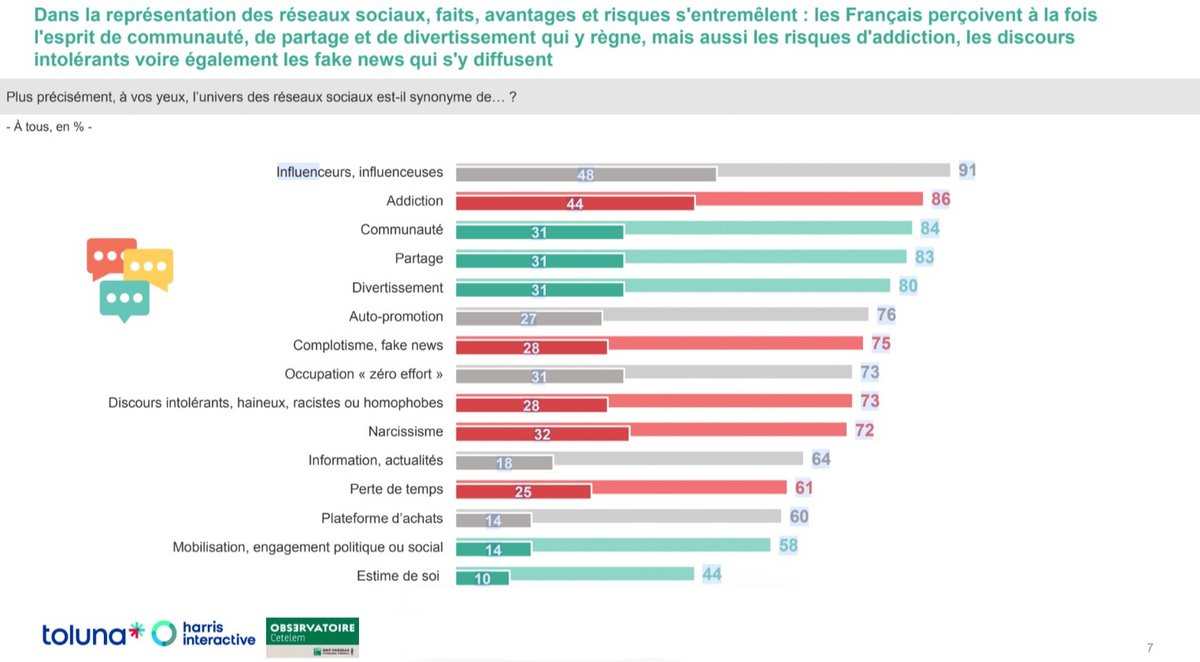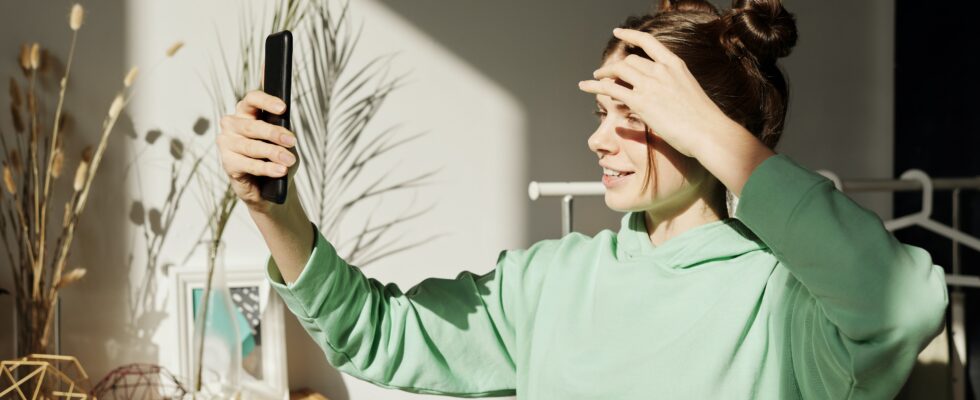Among the French, social networks arouse a feeling of danger which can be personal or collective, with a very strong imprint of influencers, fake news and addiction.
A survey carried out by Toluna and Harris Interactive for L’Observatoire Cetelem on ” social networks, for better or for worse reveals that while many French people questioned on these platforms spontaneously mention their names and their main functionalities, many also consider them through the prism of their potential dangers.
Social networks are “dangerous” for the French
The first word that comes up with a majority of respondents when thinking about the world of social networks is ” dangerous “. And it is anything but a coincidence. When it comes to asking the French people what social networks can be synonymous with, the emphasis is once again on the danger. Despite everything, neutral and even positive evocations are not lacking, let’s not darken the picture too much either.
91% of respondents evoke the idea of influencers when thinking about social networks. A rather neutral feeling therefore, immediately followed by addiction, one of the negative sides of these platforms, which comes back to 86% of respondents.
Rather isolation than social ties
Positive sentiments are strong, with community (84%), sharing (83%) and entertainment (80%) rounding out the top 5, followed by self-promotion (76%), a more neutral idea. But conspiracy, associated with false information (75%), intolerant, hateful, racist or homophobic speech (73%) as well as narcissism (72%) are all in the top 10, clearly ahead of ideas of information and news (64%) or mobilization and political or social commitment (58%).
The analysis resulting from this study is a rather dissonant representation of social networks, made up of negative feelings that tend to take more place as the historical platforms age and new ones appear.
This very mixed opinion of the French takes on its full meaning when it comes to knowing whether they consider that social networks promote more isolation than social ties. For 58% of them, networks are rather a factor of isolation, in that they lead to neglecting the real in favor of the virtual. 42% of those questioned think, for their part, that their existence is a factor of social bond, which facilitates contacts and makes it very easy to talk, or even to find people lost sight of.

It should be noted, however, that on all the social networks most cited by the French in the context of the study (YouTube, WhatsApp, Facebook, Instagram, Pinterest, LinkedIn, Snapchat, Twitter, TikTok, Twitch, Discord, Telegram , Signal, Mastodon, BeReal), only Twitter (36% have a good image of it, 44% a bad one) and especially TikTok (29% have a good image of it, 56% a bad one) give off a more negative than positive image. YouTube (84%) and WhatsApp (72%) take the prize for good image.
Source : Toluna/Harris Interactive Study

4